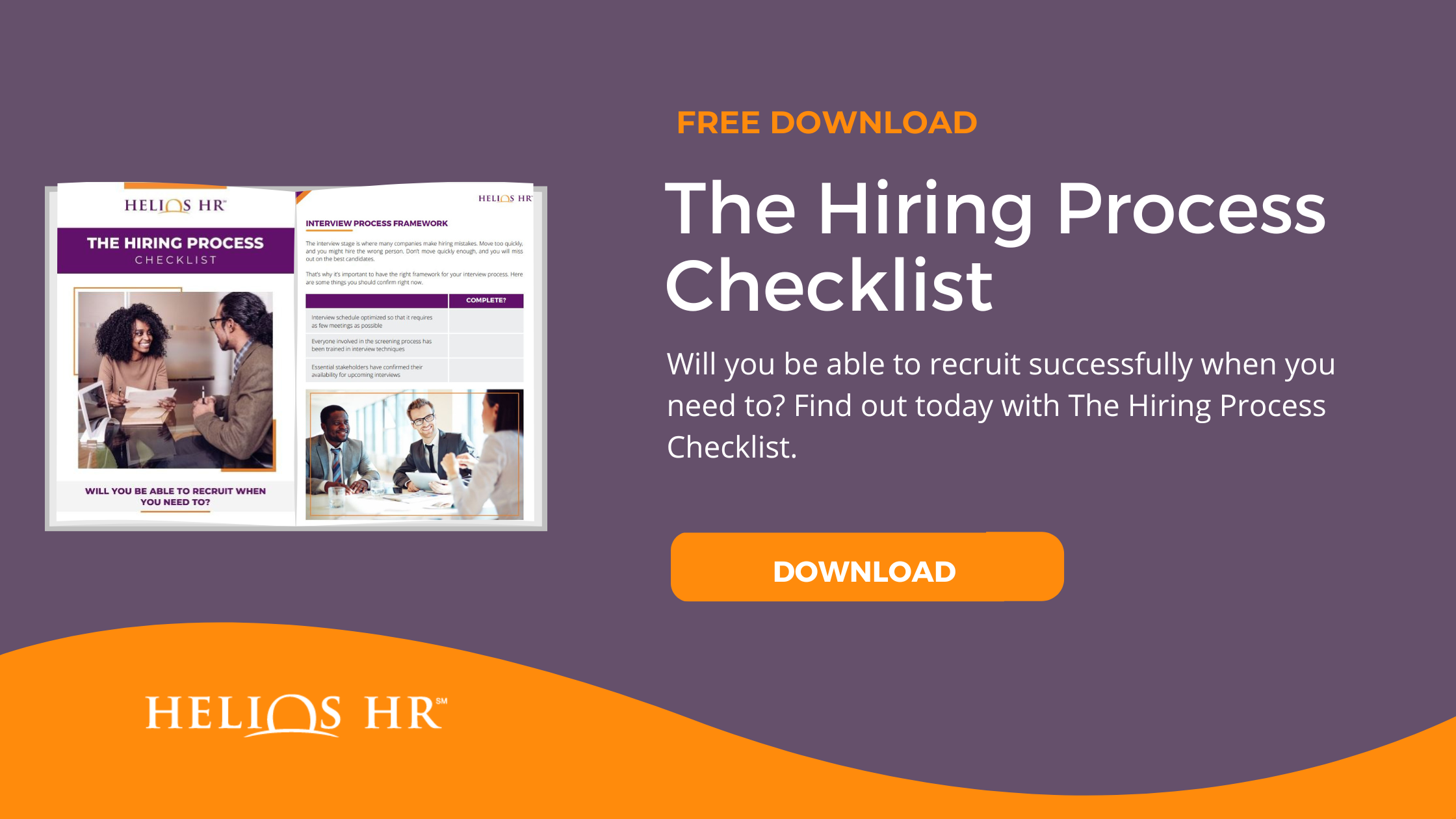By: Riley Anderson on November 28th, 2022
How to Make Virtual Interviews Part of Your Hiring Process
Hiring can be a time-consuming process. Around half of recruitment managers say it takes an average of three interviews to find the right candidate, while 22% of recruiters need four interview rounds.
Scheduling an in-person job interview is often the trickiest part of the process. That's why virtual interviews have become so common, with 88% of employers saying that at least part of their recruitment process takes place online.
Naturally, there are some advantages and disadvantages to this approach. Let's take a closer look at how virtual interviews can impact your hiring process.
Pros and cons of virtual interviews
Remote interviewing can help make your recruitment process much more user-friendly. Some advantages of virtual interviews are:
- Reduces time spent scheduling interviews, which can take up to five hours per candidate
- Candidates don't need to spend time commuting to your office
- Recruitment process stakeholders can dial in or view a recording of the interview
- Allows you to interview candidates for remote positions
- Overall better candidate experience
But virtual interviews are only a partial replacement for face-to-face meetings. You may face issues such as:
- Technology glitches can happen, even when both parties are fully prepared
- Difficult to assess a candidate's body language and general demeanor
- Notifications can distract both interviewers and candidates
- Risk of discrimination against candidates who don't have access to Wi-Fi, or people who struggle with technology.
Virtual interviews can help create a better hiring experience—if you get your process right. And remember: Having a positive interview experience makes candidates 38% more likely to accept a job offer.
What is the standard process for conducting virtual interviews?
Fully remote interviewing is still quite rare, unless the job itself is 100% remote. Most employers use virtual interviews as one step in the overall process, allowing them to reduce the overall recruitment cycle time.
A typical interview process might go like this:
- Phone screener: The candidate chats with a recruiter or HR rep to ensure that the candidate meets basic requirements, such as education, qualifications, and employment eligibility.
- Virtual interview: The virtual interview might involve HR, a direct report manager, or a technical expert. This gives you a chance to discuss the job in more detail and see if the candidate is a good fit.
- In-person interview: You can then bring your shortlisted candidates to the office, where they can meet senior management and get a taste of your organizational culture.
Again, this varies depending on the role, and senior roles might require multiple rounds of interviews.
But remote interviews allow you to speed up the overall process, which means you can move faster when the right candidate appears.
5 tips for conducting virtual interviews
A robust virtual interview process will improve your chances of finding the right person when you need them. Here are five essential tips:
1. Choose the right virtual interview platform
If you want to invest in your virtual interview process, you can use a dedicated video interviewing platform like Spark Hire, VidCruiter, or Willo. Many of these products offer integration with your Application Tracking System, allowing you to streamline your recruitment process.
You can also use a regular video chat application, such as Zoom, Microsoft Teams, Skype, or Facetime. One advantage of video chat is that candidates are probably familiar with the apps, so they will have an easier time navigating any technical issues.
2. Offer support to hiring managers
Interviewer training is a vital part of your hiring process—99% of managers who have received such training say that it improved their interviewing skills. Virtual interviews require a different approach from in-person interviews, so help your hiring managers develop their techniques for remote conversations.
Also, providing technical training is essential, especially if you're using an unfamiliar video interviewing platform. Hiring managers will need to know how to make the most of the software's features—and how to deal with any tech glitches during the interview!
3. Reach out to the candidate
You want to make the hiring process as pleasant as possible, so it's a good idea to speak to the candidate and make sure they're comfortable. Consider asking questions beforehand like:
- Does the interview scheduling work for you?
- Do you know how to log into the virtual interview?
- Do you have a suitable device and reliable internet access?
You can also email them some interview tips, such as ensuring they check their connection beforehand and sitting in a well-lit room.
4. Avoid all distractions
We all know how hard it is to stay focused when you're online. There are email alerts, IMs, and invitations to other meetings. All interviewers should set their status to Busy and turn off all applications that send notifications.
The same is true for the candidate. Advise them beforehand to switch their phone to Silent or Do Not Disturb and to shut down any distracting apps.
5. Tailor your questions to a virtual interview
In a face-to-face interview, you can learn a lot about the candidate through their body language. You can't do that in a virtual interview, which means that you may need to think about the questions you ask.
STAR questions (Situation, Task, Action Result) are an excellent way to get the candidate talking about their experience in more detail. These detailed verbal answers should help you get a clear idea of the interviewee's suitability.
Need help with your recruitment process?
If you're having trouble with any aspect of recruiting, it could be because you don't have the right hiring process in place.
Building a great hiring process takes a lot of time and HR expertise. But it's worth investing in this process because it means that you will have access to the right candidate at the right time.
Recruitment Process Outsourcing (RPO) gives you access to the expertise you need. With the right RPO consultant, you can build a hiring process that always delivers.
Want to talk about how RPO can help your business? Book a call with a Helios HR consultant today, and let's talk about how you can build your winning team.





